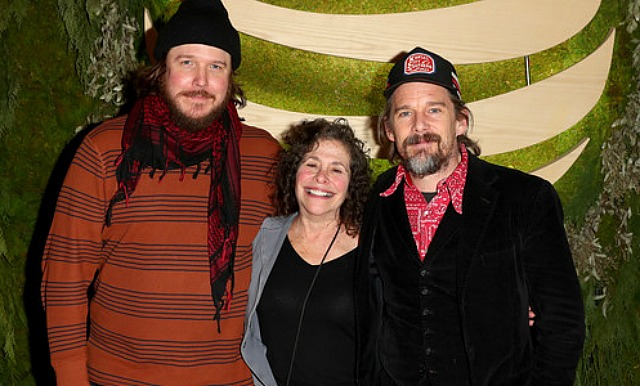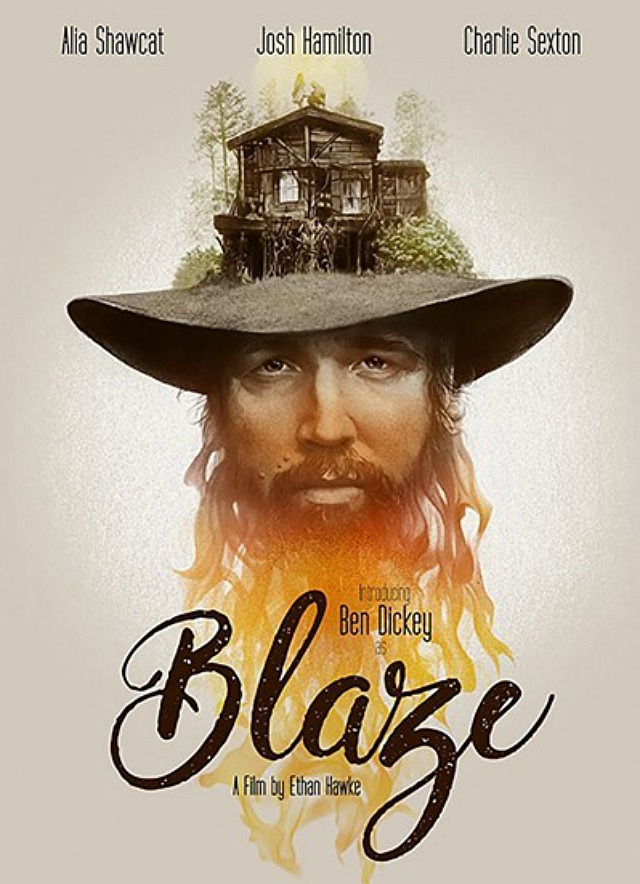Late this afternoon I caught Ethan Hawke‘s Blaze, a seriously authentic-feeling biopic about the still relatively unknown country-soul singer Blaze Foley, who died from a gunshot wound in 1989.
It almost goes without saying that films about musicians will focus on boozy, self-destructive behavior — Walk The Line, Bird, I Saw The Light, Payday, Michael Apted‘s Stardust, The Joker Is Wild, etc. But Blaze feels home-grown and self-owned in a subdued sort of way. It has a downmarket, lived-in vibe. I wasn’t exactly “entertained”, but every line, scene and performance felt honest and unforced.

(l. to r.) Blaze star Ben Dickey, cowriter Sybil Rosen, director-cowriter Ethan Hawke.

Gifted but temperamental with a serious booze problem, Foley (Ben Dickey) never really got rolling as a recording artist, but he was a well-respected outlaw artist with a certain following in the ’70s and ’80s. Dickey’s purry singing style, similar to Foley’s, reminds me of a sadder Tony Joe White (“Polk Salad Annie”).
Hawke focuses on the guy’s soft, meditative side and particularly his relationship with real-life ex Sybil Rosen (Alia Shawkat). He gets a truly exceptional performance out of Dickey, a hulking, elephant-sized musician who’s never acted prior to this. Dickey’s Foley is such a good fit — centered, settled, unhurried — that I nearly forgot about the bulk factor.
Blaze offers noteworthy supporting perfs from Kris Kristofferson (as Foley’s dad), Sam Rockwell, Richard Linklater, Steve Zahn (as a trio of record company partners) and Josh Hamilton, among others.
The script was co-written by Hawke and Rosen, author of a relationship memoir titled titled “Living in the Woods in a Tree: Remembering Blaze Foley“. You can just sense that Hawke knows musician behavior like his own. Hell, I was one myself (i.e., a mediocre drummer) for a while, and know the turf to some extent, and it all feels right.
Does the 127-minute length seem a bit long? Maybe. I was talking to a couple of critics who felt this way. I wasn’t bothered — the laid-back pacing agrees with the rural milieu and contemplative, occasionally surly country-dude attitude.
There’s a documentary called Blaze Foley: Duct Tape Messiah, directed by Kevin Triplett and released in 2011.

